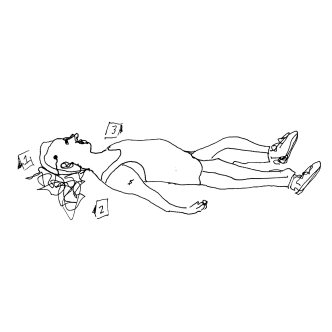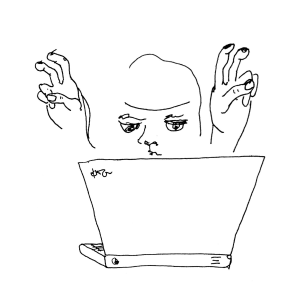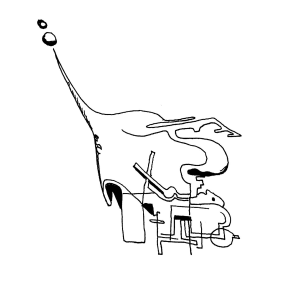
The plan grew overnight. I went to bed with the idea in my mind and woke up the next morning, decided. I get in the car and take the turnpike from Massachusetts to Michigan. The drive is boring. Especially the long stretch across New York. I drive for hours, trying not to think about what I am doing.
The drive is more interesting around Cleveland. The turnpike runs along the outskirts of the city. In one particular turn, the highway peaks around the edge of Lake Erie. The lake is nearly at eye level. It’s a huge body of water and it feels ready to spill over and swallow you up. But then it’s gone. The road curves, serpentine, crowding my view. The city to the right is a mixture of gray and red brick pumping out plumes of smoke.
I drive away from the city. There is corn on either side of the road now. Ohio is at the edge of the corn belt. The soil is hospitable for it; for agriculture in general. But corn is a resource heavy crop. Year after year corn is swapped for soy, or a cover crop, and sometimes tomatoes, to give the soil a break. Corn is the money maker. Not organic corn but GMO corn. Food that will take us to/through Armageddon.
I get off the turnpike and take the highway to Michigan and toward my hometown. The area is flat. It is flat for the same reason it’s fertile. Thousands of years ago the glaciers retreated across North America. They gouged out the lakes. The weight of the glacier and the melt water flattened out the region, filled the lakes, and deposited the silt and materials enriching the soil. I take a left on a narrow country road; almost there.
The sun is glaring down and the ditches are overgrown. Bundles of goldenrod and cheatgrass threaten to take over. The cornfields are sapped of color: browned by heat and drought. It rained last night, too late for anxious farmers. I roll down my window. The smell of wet hay slips into the car.
The road is cracked and uneven. I dodge new potholes. I drive till the pavement ends. The road continues as a dirt path that leads to hometown. The house I grew up in is on my left. My mother and step-father sold it the month before.
I drive around the block, park on the side of the road, and give the place one last look.
The cat tails, rooted in the murky ditch, look like rotten teeth. The gash in the earth, that forms the ditch, are gaping-crooked lips. Wasps swarm a rotten apple. Red moss blankets the ground. The pool I helped dig is filled with strangers. Grandparents look on from the porch my step-father built. A farmer rests his hands on hips and puzzles over his tomato crop.
The barn behind the house slumps. The roof that covered the cow stall has fallen in. Years ago, I fed Bobo, our cow, ears of corn by hand. The ducks were picked off by coyotes. I buried them, along with two cats, in a pet cemetery fashioned from the vacant pig pen. We ate the chickens. We ate the cow. When the animals were dead I made the barn into a haunted house. I worked on it after school. I wandered around its empty rooms letting my mind unravel: planning-picturing my setup. I invited the neighborhood kids the week before Halloween.
A small path leads away from the barn to the wooded lot; the end of our property. A honey bee nest rests in the crux of a thick oak tree. I’m sure it’s still there, but that’s someone else’s surprise to discover.
I get back into the car and roll down the windows. The dirt road follows into my home town. I change direction and get back on the pavement. I don’t know where I am going. I drive and drive and drive. The tears come to my eyes while I shout thank you to the fields of corn that stubbornly persist.
.



 Amazon Link
Amazon Link Amazon Link
Amazon Link Amazon Link
Amazon Link Amazon Link
Amazon Link “We are all refugees from our childhoods.”
“We are all refugees from our childhoods.”